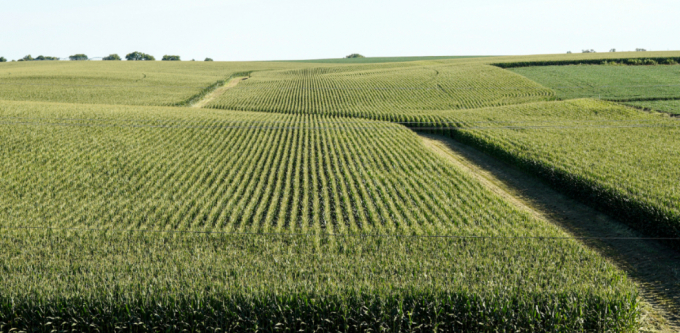May 24, 2025 | 16:27 GMT +7
May 24, 2025 | 16:27 GMT +7
Hotline: 0913.378.918
May 24, 2025 | 16:27 GMT +7
Hotline: 0913.378.918

A field of corn grows near Ashland, Neb., Tuesday, July 24, 2018.
Another major heat wave expected to hit most of the country this week could damage corn crops in plains states, some experts fear.
Record highs between 90 and 105 degrees will hit the Pacific Northwest and Rockies, and temperatures are forecast to reach the high 90s in the South and Midwest by Tuesday, according to The Washington Post.
New York and New England are expected to get the hottest weather of the year, topping out at 100 degrees Fahrenheit, according to AccuWeather forecasters.
This week’s sweltering temperatures won’t be as long-lasting as the rolling heat waves that affected the country for half of July but could still wreak havoc on some of the country’s crops.
“This heat and dryness could last a couple of weeks into August, and it could have an effect on the kernels in the ears and the yield that is produced,” AccuWeather Lead Long Range Forecaster Paul Pastelok told Changing America.
Corn and soybeans are at the highest risk of being damaged by this week’s heat. Luckily, though, corn has just passed its most critical period in its life cycle: the pollination stage.
During this short window, the corn plant uses the most amount of water, which makes soil moisture vastly important — and temperatures above the mid-90s can lower pollen viability.
“Stress that occurs right now really has some of the biggest impact on yield,” said Dan Quinn, assistant professor of agronomy and extension corn agronomist at Purdue University. “So, in areas where you see persistent drought and really high—pushing upper 90s- and 100-degree temperatures—that’s more than likely going to hurt some yields for corn.”
Pollination determines how many kernels of corn appear on an ear once it’s harvested.
“So, if we have poor pollination, you’ll actually pull the ears and have missing kernels throughout the ear,” said Quinn.
And those missing kernels add up. In extreme and prolonged drought, farmers can lose between 8 to 10 percent of their corn yield pers day, Quinn added.
It is still too early to say how the heat, drought and a delayed planting season have played into corn yields, but the USDA’s 2022 predictions are set to come out this month. If anticipated yields are lower than expected, the price of corn could go up.
Since almost half the corn produced in the United States is used for livestock feed, and more than a quarter is used for ethanol, an increasing price in corn could cause the prices of other products, like meat, to go up.
“We’re used to high yields getting higher every year and it’s certainly possible that this year might not hit that goal, but many years don’t,” said Emerson Nafziger, a professor emeritus at the University of Illinois Urbana-Champaign, adding that heat and dryness has been far worse before.
In 2012, corn farmers spent the summer battling a historic drought in the Midwest that cut down yields by 13 percent from the year before.
(The Washington Post)

(VAN) Alt Carbon has raised $12 million in a seed round as it plans to scale its carbon dioxide removal work in the South Asian nation.

(VAN) Attempts to bring down the price of the Japanese staple have had little effect amid a cost-of-living crisis.

(VAN) Fourth most important food crop in peril as Latin America and Caribbean suffer from slow-onset climate disaster.

(VAN) Shifting market dynamics and the noise around new legislation has propelled Trouw Nutrition’s research around early life nutrition in poultry. Today, it continues to be a key area of research.

(VAN) India is concerned about its food security and the livelihoods of its farmers if more US food imports are allowed.

(VAN) FAO's Director-General emphasises the need to work together to transform agrifood systems.

(VAN) Europe is facing its worst outbreak of foot-and-mouth since the start of the century.